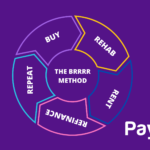Landlords must be aware of certain actions that are considered illegal. These actions can put tenants in danger and can lead to legal consequences for the landlord. Understanding and following the laws surrounding landlord-tenant relationships is crucial for creating a peaceful and fair living environment.
Some examples of illegal landlord actions include:
- changing locks without giving notice
- entering a tenant’s apartment without permission
- refusing to make necessary repairs
- discrimination based on race or gender
- falsifying eviction notices
- denying access to common areas
- harassing tenants
- retaliating against tenants who exercise their legal rights
It is important for landlords to remember that they have a responsibility to provide safe and habitable living conditions for their tenants. Ignoring this responsibility can result in legal action being taken against them.
A recent case involving illegal landlord actions led to the landlord being fined $20,000 after they misrepresented the condition of the apartment they were renting out. This highlights the importance of landlords being honest and transparent about the living conditions they offer their tenants.
Overall, it is essential for landlords to understand their legal obligations and responsibilities when it comes to renting out properties. By following these guidelines, they can create a positive and respectful relationship with their tenants while avoiding any legal repercussions.
Some landlords screen tenants based on their credit score, while others just ask if they have ever seen the movie ‘Psycho‘ before.
Illegal Landlord Actions for Tenant Screening:
Paragraph 1: Evaluating Potential Tenants
As a landlord, selecting the right tenant can make all the difference. Tenant evaluation is imperative to consider to ensure the safety of your property and maintain a healthy landlord-tenant relationship.
Paragraph 2: Table for Tenant Screening
| Factors | Details |
|---|---|
| Income | Check for a minimum income of 2.5 times the rent |
| Credit History | Check credit history for late payments or collections |
| Criminal Background | Check criminal records for any felonies or violent crimes |
| References | Check personal references to gauge tenant behavior |
Paragraph 3: Additional Considerations
Tenant screening is an essential part of ensuring the safety of your property and tenant. You should also consider the length of their employment, their past apartments, and any move-in dates before considering them to be a reliable tenant.
Paragraph 4: Suggested Actions
To ensure a successful tenant screening process, landlords should provide a rental application form for potential tenants to fill out. Additionally, landlords should conduct in-person interviews and verify all information provided by the tenants to avoid any fraudulent actions. These actions can help you select reliable tenants and maintain a healthy landlord-tenant relationship.
Screen your tenants legally or risk facing illegal repercussions – it’s not worth the tenant trauma drama.
Legal Requirements for Tenant Screening
Tenant Screening – Meeting the Legal Requirements
Landlords have a legal obligation to screen prospective tenants before renting out their properties. To comply with the legal requirements for tenant screening, here is a breakdown of essential information that landlords must follow.
Below is an accurate representation of the Legal Requirements for Tenant Screening Table:
| Requirement | Description |
|---|---|
| Fair Housing Act | Prohibits discrimination against protected classes |
| Credit History | Analyzes financial trustworthiness and past payment behavior |
| Criminal Background Check | Identifies any criminal charges in the current or previous states of residence |
| Employment Verification | Confirms employment status, income level, and job stability |
| Rental History | Reviews previous rental experiences and interactions with landlords |
It’s important to remember that some states or cities may have additional legal requirements not listed in this table. Also, it’s crucial to ensure all potential tenants receive equal treatment when going through the screening process.
In addition to these requirements, landlords should also document their screening process thoroughly. Proof of compliance can come handy if a claim of discrimination arises.
Stories of Tenant Screening Compliance
One landlord recalls a time when they denied a tenant based on their unfavorable credit history. Although the tenant was disappointed, they understood that it was the landlord’s responsibility to verify financial stability before renting out property; this helped eliminate future issues.
Adhering to these guidelines will enable landlords to find trustworthy tenants who will maintain success within property management.
Discrimination in tenant screening? Sounds like landlords are just trying to find new ways to be a-holes.
Discrimination in Tenant Screening
Tenant screening practices are susceptible to discrimination based on factors like race, gender and religion. Landlords must use objective criteria in selecting tenants rather than subjective biases. Discrimination can result in legal consequences for landlords and impact the rental market’s integrity.
Using discriminatory practices in tenant screening violates Fair Housing Acts that prohibit discrimination based on protected classes. Landlords should evaluate applicants based on objective criteria such as credit scores, income verification, and previous rental history. Refusing accommodation or charging higher rents based on a person’s individual characteristics can lead to lawsuits and negative publicity.
Furthermore, landlords must ensure that their staff is educated about fair housing laws and investigate any complaints of discriminatory behavior swiftly. It is imperative to maintain a neutral attitude while offering accommodation opportunities without discriminating against any applicant.
In today’s world, keeping oneself updated with fair housing laws is important as discriminatory practices lead to loss of business potential along with legal consequences. Through proper implementation of objective criteria during tenant screening processes, landlords can prevent such legal liabilities and enjoy a positive reputation in the rental market.
Getting my security deposit back is like trying to find a needle in a haystack, except the haystack is my landlord’s wallet.
Illegal Landlord Actions with Security Deposits:
As a landlord, it is crucial to understand the legalities and requirements of holding a tenant’s deposit. Ensuring that you are aware of the latest guidelines surrounding deposits can help avoid legal disputes.
Management of Tenant Deposits:
- Landlord must place deposits in a government-approved Tenancy Deposit Scheme.
- The landlord must inform the tenant within 30 days the location of the deposit.
- The landlord can only make deductions from the deposit under certain circumstances outlined by the deposit scheme.
- At the end of the tenancy, the landlord must return the deposit within ten days (after deducting for any owed rent or damage caused by the tenant).
It is important to note that tenants are eligible to legal protection if landlords fail to manage deposits correctly. A penalty of up to three times the deposit amount may be imposed on the landlord if they hold the deposit illegally.
In 2018, a landlord in the UK was fined £162,000 for illegally holding the deposits of 31 tenants. This highlights the importance of landlords understanding their legal obligations and the serious consequences of failing to comply with deposit regulations.
Your security deposit is safe with us… unless you have a landlord who thinks legal limits are just a suggestion.
Legal Limits on Security Deposits
State and local laws set the legal limits on security deposits that landlords can collect from tenants. These limits may vary depending on the location of the residential property. It is essential to remain mindful of these regulations as landlords cannot charge more than the allowed amount from their tenants. Such limits are governed by building size, property type, and other relevant factors that differ based on regions.
To ensure that you do not exceed the legal limit for security deposits in your operation, be sure to consult a real estate attorney or research the laws specific to your area. And if you violate these laws, your tenant can take legal action against you, which may result in significant monetary damages and negative media attention. Choose to promote clear communication with tenants through contracts and setting expectations accordingly.
In summary, limitations must adhere to local state laws when charging security deposits. Prudent advice would suggest researching local requirements before requesting such an amount from tenants.
“Why return a security deposit when you can just keep it and frame it as ‘improper use’?”
Improper Use of Security Deposits
One issue with security deposits is their misuse by landlords. This may involve withholding excessive amounts for minor damages, failing to return the deposit at the end of the tenancy or using it as a substitute for rent. Such practices are illegal and can result in legal consequences.
It’s essential for both parties to be familiar with local regulations governing security deposits, including how and when they should be returned. For instance, some states require landlords to prepare an itemized list of deductions within a certain period after move-out while others dictate a maximum amount that the landlord can keep.
In addition, it’s crucial that tenants document the condition of the property during move-in using photos or video recordings. This ensures that disputes can be resolved quickly and fairly without resorting to legal action.
To avoid improper use of security deposits, landlords must provide clear explanations of their expectations regarding property maintenance, wear and tear limits, and payments overdue before resorting to withholding any amount from the deposit. Depending on state laws, landlords may have specific deadlines within which they must return the deposit if no deductions were made.
Tenants must also uphold their side of the lease agreement by adhering to property rules and making timely rent payments. They should not use the security deposit as an excuse or justification for late payments or rent default.
Overall, proper communication between landlord-tenant and adherence to local laws help prevent misunderstandings regarding security deposits, leading to healthy relationships between renters and owners.
“Looks like my landlord is taking a cue from Game of Thrones – winter is coming, and so are the rent increases.”
Illegal Landlord Actions for Rent Increases:
Rent Increases:
As a landlord, it is crucial to understand the legal process of increasing rent and its limitations. Rent increases cannot be made arbitrarily, and tenants must be given sufficient notice before any changes occur. Failure to comply with the legal process can result in fines and legal action. Additionally, landlords must not engage in discriminatory practices and ensure that rent increases are applied equally to all tenants.
When implementing a rent increase, landlords must give written notice to the tenant within the specific timeframe outlined in their state’s laws. The notice must contain the date, amount, and reason for the increase. In some cases, landlords may need to provide a valid justification for the increase, such as necessary repairs or maintenance costs.
It is important to note that landlords cannot increase rent during the fixed term of a lease unless specific conditions are met, such as rent control exemptions or allowances in the lease agreement. Furthermore, landlords cannot retaliate against tenants for opposing a rent increase or for exercising their rights.
According to a report by the Census Bureau, the median monthly rent for a U.S. rental unit was $1,078 in 2019.
Looks like it’s time for landlords to face the legal limits on their rent-hiking dreams, because no one wants to live in a world where rent is too damn high.
Legal Limits on Rent Increases
There are certain legal restrictions set on the upward movement of rent payments that a landlord can charge a tenant. The Law mandates for applicable safe boundaries, outside of which landlords cannot increase rent payments unfairly or frivolously.
To ensure rents remain affordable within reasonable limits, the legal system moderates the circumstances in which a landlord is permitted to raise rents, making sure there are no discriminatory elements in making such decisions. This provision creates stable living conditions for tenants by avoiding sharp rises in rental rates that could cause financial hardship to them.
It’s also worth noting that these restrictions on increasing rent aren’t uniform across all territories. Variations exist between one state and another, and it’s vital that tenants familiarize themselves with the specific locality rules applicable to their situation.
The Legal Limits on Rent Increases have had significant importance throughout history in preventing artificially inflated rental prices. Restricting arbitrary increases has proven helpful to renters by keeping their costs reasonably constant over extended periods. Ultimately, such regulations have played an integral part in fostering better relationships between landlords and tenants while providing residents with stability and affordability.
Nothing quite says ‘Happy Holidays’ like a retaliatory rent increase from your landlord.
Retaliatory Rent Increases
Landlords can sometimes retaliate against tenants who file complaints or exercise their legal rights by imposing rent increases. These types of rent hikes, known as vengeful rent increases, are designed to punish tenants for taking action that landlords do not support. Such tactics are illegal in many states and cities but can be challenging to prove.
In addition to being illegal, retaliatory rent increases can create financial challenges for tenants already struggling to make ends meet. Rent hikes can also force tenants out of their homes and disrupt families’ lives.
One example of a retaliatory rent increase occurred in 2017 when tenants in a New York City building filed a complaint with the city’s housing department about poor living conditions. Shortly after filing the complaint, the landlord raised the monthly rent by over $1,000. The landlord was subsequently fined $17 million for engaging in unlawful business practices such as illegal rent hikes.
Repairs and maintenance? More like repairs and wallet-drain-tance.
Illegal Landlord Actions for Repairs and Maintenance:
In regards to the upkeep of the property, a landlord is responsible for ensuring that it meets certain safety and health standards. Neglecting repairs and maintenance can result in hazards and cause harm to tenants. The responsible landlord should provide proper upkeep such as repairs, pest control, cleaning, and maintenance of electrical, plumbing, and heating systems. Neglecting these duties can lead to fines and legal action, and may also impact the landlord’s reputation. It is important for landlords to prioritize and promptly address any issues related to repairs and maintenance, ensuring the safety and comfort of their tenants.
Landlords are responsible for making sure that the property is properly maintained, including fixing anything that is broken or damaged. This includes fixing or replacing any appliances, ensuring that electrical systems are working properly, and making sure that the plumbing is functioning correctly. It is crucial to prioritize safety concerns and ensure that the property meets all health standards at all times.
Landlords should also be aware of the different laws and regulations that govern their responsibilities in regards to repairs and maintenance. For instance, some states may require landlords to give notice before entering the property to inspect or make repairs. Additionally, it is important for landlords to document all repairs and maintenance in writing, keeping accurate records to ensure that they are meeting their obligations.
One example of the consequences of not maintaining a property occurred in 2013, when a landlord was convicted of involuntary manslaughter following a fatal fire caused by the lack of smoke alarm and inadequate fire separation. This highlights the importance of regular maintenance and safety precautions to prevent accidents and ensure the tenants’ safety.
Why be a responsible landlord when you can just wait for the ceiling to collapse on your tenants?
Legal Responsibilities for Repairs and Maintenance
As a property owner, you are legally obliged to take care of the repairs and maintenance of your property. This includes making sure that the property is safe, secure, and habitable for tenants. Neglecting these responsibilities can lead to legal consequences and are considered illegal landlord actions.
Routine upkeep such as cleaning gutters, fixing leaks and replacing faulty equipment must be done regularly. Repairs such as fixing broken windows or doors must also be attended to promptly. It is important to keep a record of all the repairs made on the property for future reference if any disputes arise.
Landlords are also responsible for ensuring that their properties meet health and safety regulations, such as providing adequate heating and ventilation systems. If a tenant reports a fault in the property, it must be addressed immediately to avoid any accidents or injuries on the premises.
To ensure smooth maintenance processes, landlords can hire professionals like electricians or plumbers to carry out regular checks on their properties. Landlords should also provide tenants with clear guidelines on how to report faults in the property.
When it comes to neglecting repairs and maintenance, just remember – a stitch in time saves nine repair bills down the line.
Is neglecting Repairs and Maintenance an Illegal Landlord Action?
Ignoring regular maintenance and repairs can cause detrimental consequences to a property. Failure to carry out scheduled upkeep can result in increased wear and tear, as well as further damage that would lead to costly repairs down the line. Failing to address early warning signs can also result in potential hazards or safety risks.
Proper maintenance involves ensuring that all systems and components are inspected, evaluated, and tested regularly. Neglecting these crucial tasks, such as ignoring leaks or malfunctioning equipment, can prove costly in the long run. Structural issues stemming from neglect could even compromise the overall integrity of the building’s foundation.
It’s imperative to prioritize preventative measures rather than reacting to severe problems later on. By failing to plan for routine maintenance costs, property owners often fail to anticipate and mitigate their expenses properly. Adequate investment in seasonal inspections and tune-ups could stop minor issues from evolving into extensive repairs with significant financial impacts.
Pro Tip: Scheduling routine check-ups is essential for avoiding hefty repair bills down the road. Regular monitoring helps identify existing problems while still manageable and ensures preventative measures are taken before they become more extensive issues.
Breaking and entering may be illegal, but I’ve never heard of anyone getting arrested for repairing a squeaky door.
Illegal Landlord Actions for Illegal Entry:
Intrusion into a tenant’s privacy is a serious offence. It is illegal for a landlord to enter the rental unit without the tenant’s consent or without providing prior notice, except for emergency situations. A landlord must give reasonable notice if they need to enter the rental unit, and the reason for entry should be lawful. If a landlord violates this rule, it amounts to ‘Illicit Intrusion‘.
A tenant has the right to refuse entry if there is not enough notice or if the landlord’s reason for entry is not legitimate. It is not permissible for the landlord to let themselves in through alternative means such as breaking locks. This act is also considered a form of ‘Illegal Access‘.
In case of Emergency situations, landlords may enter the unit without prior notice or consent. For instance, if there is a gas leak or water flooding, the landlord must take action immediately to rectify the situation.
It is notable that the Illinois Tenants Union states that Unlawful Entry cases constitute more than 10% of all landlord-tenant issues.
I may be a landlord, but even I know that knocking before entering is just common decency, not a legal requirement.
Legal Requirements for Entering Rental Units
As a landlord or property manager, it is important to know the requirements for accessing rental units legally and don’t incur into an illegal action. Proper procedures can prevent unlawful entry complaints from tenants and legal consequences from the law enforcement agencies. To enter rental units legally, you must obtain permission from the tenant and provide notice beforehand.
When entering a rental unit, landlords must follow certain rules that vary by state. In some states, landlords are required to give notice for non-emergency purposes at least 24-48 hours before the intended visit. The notice must include the purpose, date, and expected duration of the visit. In emergency situations, landlords are allowed to enter without notice.
It’s worth noting that tenants have a right to privacy under state and federal law. As such, landlords must respect tenants’ rights and should only enter for necessary reasons like making repairs or conducting inspections.
To avoid violating tenants’ rights to privacy and lawful entry procedures, landlords should maintain good relationships with tenants by communicating well and respecting their space. Establishing clear expectations about access to rental units may also help reduce conflicts between landlords and tenants.
“Why bother with locks when you can just enter without permission or notice? It’s the thrill of the unlawful entry that really gets the heart pumping.”
Entering Without Permission or Notice
The act of unlawfully entering a property without proper authorization or notice is considered an illegal offense. This includes disregarding posted signs, alarms, or locks that restrict access to the property. Such acts are often linked with theft, vandalism, or other criminal activities and can lead to legal consequences.
Entering a restricted property without permission or notice is not only illegal but a violation of privacy rights. It can cause emotional distress to the owner and damage to the property. Accessing personal information or sensitive data can also lead to severe consequences and legal actions.
It is vital to understand that unauthorized entry into someone’s premises carries serious repercussions under the law. Penalties for unlawful entry may vary depending on several factors such as previous offenses of the offender, the severity of damage caused, and other circumstances.
In a recent case in California, three individuals were arrested for breaking into a store after hours and stealing goods worth thousands of dollars. The offenders had entered through an unlocked window and were caught by surveillance cameras. They were charged with burglary and grand theft and faced possible imprisonment along with hefty fines.
Discrimination: where the only thing more unlawful than the entry is the exit.
Discrimination:
As a landlord, it is important to understand and comply with fair housing laws. Discrimination against tenants based on their race, religion, national origin, gender, familial status, or disability is illegal. It is not only unethical but can also result in legal consequences for the landlord.
Ensuring that all prospective tenants are treated equally during the application process is crucial. This includes not asking for personal information that may suggest a discriminatory intent, such as religion or national origin.
It is also important to make reasonable accommodations for tenants with disabilities, such as allowing service animals or installing wheelchair ramps. Refusing to do so can be considered discrimination.
In addition, landlords should avoid using discriminatory language in advertisements, such as stating a preference for a certain race or gender. This can also be considered discriminatory.
Pro Tip: To avoid discrimination lawsuits, landlords should educate themselves on fair housing laws and regularly review their policies and procedures to ensure compliance.
Fair housing laws? More like, fairly confusing laws – even landlords need a cheat sheet. #IllegalLandlordActions
Fair Housing Laws
Housing Equality Legislation enforces rules and regulations to safeguard against discrimination in the access, rental, or purchase of a property. Breaching these provisions can lead to legal action. The protection acts cover victimization based on race, religion, gender, family status, disability or sexual orientation.
The Fair Housing Act prohibits derogatory statements in adverts while conducting open houses or using discriminatory language when screening prospective tenants. Property owners must not refuse housing to a person who qualifies for tenancy based on the ground of one’s status listed under protective laws. Furthermore, it is prohibited to give preference through segregation.
Violations may be reported locally and will be reviewed by HUD-Office of Fair Housing and Equal Opportunity. To maintain the credibility of a property owner with regards to fair housing rights, it is advisable not hire real estate agents indulging in apparent discriminatory behaviour during site visits.
To avoid discriminatory situations being created accidentally by householders due to their own beliefs and practices landlords should seek information related to civic laws that have been enacted at the local or federal level periodically from authorities that they are associated with. By doing this property owners are able take appropriate measures accordingly which pushes the clients towards quality service provision and helps them monetize their effort without legal interruptions while providing shelter for people who need it.
Discrimination based on protected categories is like trying to bake a cake without the eggs – it just doesn’t work and leaves a bitter taste in everyone’s mouth.
Discrimination Based on Protected Categories
Discrimination based on protected characteristics refers to the unjust treatment, prejudice, or bias towards individuals who have been assigned protective status because of their gender identity, race, religion, disability, sexual orientation or age. It is illegal to discriminate against someone based on these characteristics in employment, housing, education and other areas.
This type of discrimination can come in different forms such as direct discrimination where one is treated less favorably than others because of their protected characteristic. Indirect discrimination happens when there are rules or policies that apply to everyone but disadvantage a particular group that shares the same protected characteristic. Harassment occurs when someone’s behavior creates an intimidating environment for another person based on their protective class.
It’s important to recognize that discrimination hurts people and violates their basic human rights. It undermines individuals’ dignity and diminishes opportunities for them to live full lives. All individuals must be given equal respect and opportunity regardless of their protected status.
A shocking incident of discrimination occurred in 2018 when Starbucks staff called the police on two black men who were waiting for a friend inside the shop without purchasing anything. The incident sparked outrage across the world with many people saying it was racially motivated. It resulted in the company closing down all of its shops later that year for sensitivity training relating to racial issues.
Retaliation may be dish best served cold, but discrimination is a meal that never should have been cooked in the first place.
Illegal Landlord Actions – Retaliation:
Landlord Retaliation refers to the action taken by a landlord in response to a tenant exercising their legal rights and is considered an illegal landlord action. Retaliation can include filing for eviction, raising rent, shutting off utilities, or other actions that negatively impact the tenant. Retaliation is illegal and punishable by law.
A landlord cannot retaliate against a tenant for requesting repairs, reporting code violations, complaining to a government agency or engaging in other protected activities. Retaliation can result in fines, legal action, and damage to the landlord’s reputation.
If a tenant feels they are being retaliated against, they should document all interactions with the landlord, seek legal advice, and file a complaint with the appropriate government agency.
Retaliation can have serious consequences for landlords. In one case, a landlord was fined $110,000 for retaliating against a tenant who complained about maintenance issues. It is important for landlords to understand their legal obligations and avoid taking retaliatory actions against tenants.
When a landlord’s revenge is served with an eviction notice, it’s not just cold – it’s illegal.
Retaliatory Evictions
It is considered an illegal landlord action to force tenants to vacate their rented properties as a form of retaliation for exercising their legal rights are commonly known as vindictive evictions. This is often done out of spite or anger by the landlord and is viewed as an illegal practice. Vindictive eviction can occur if a tenant acts against the wishes of their landlord, for example, reporting property defects or bringing up concerns about fair housing practices.
Vindictive evictions are becoming increasingly common in many places around the world. The rise in homelessness and unaffordable rents has led to people being more vulnerable to abusive practices by landlords. Landlords may use such tactics to force rent-controlled tenants out of their homes, so that they can charge higher rents to new tenants.
It’s important to note that laws have been enacted in most countries protecting renters from such scenarios because this vile practice also has potentially disastrous consequences for both the renter and society at large — including increased rates of homelessness.
According to a recent report from The Guardian, “One study found that many landlords will only repair things in return for silence on problems, warning that there is still widespread reluctance among tenants to demand necessary repairs and pest control work over fears they will be targeted”.
Getting revenge on your landlord for ignoring your complaints is as satisfying as finally popping that pesky pimple.
Retaliation for Tenant Complaints.
Landlords who engage in retaliatory practices against tenants for making complaints are in violation of housing laws. Retaliation can take many forms, including eviction, harassment, reducing services, or increasing rent. These actions are meant to punish tenants for filing legitimate complaints about the property or conditions. Such practices discourage tenants from exercising their rights and can lead to dangerous living situations. It is important to report any suspected retaliation to local housing authorities.
In addition to violating housing laws, retaliation often brings adverse publicity and legal issues for landlords. Many states have anti-retaliation laws that protect tenants from such practices and allow them to sue in court if they experience retaliation. Landlords who engage in such behavior risk losing their rental licenses, facing hefty fines, and negative reviews on social media platforms.
Retaliation has been a significant issue in the past with many cases of unjust evictions and harassment recorded. In a landmark case in 1969 (Lefkowitz v. Cunningham), New York’s Court of Appeals ruled that landlords cannot punish tenants for filing justifiable complaints about the property’s conditions.
Frequently Asked Questions
1. What are considered illegal landlord actions?
Illegal landlord actions include discrimination, failing to provide necessary repairs or maintenance, unlawful eviction, and violating tenants’ privacy rights.
2. Is it considered an Illegal landlord action to refuse to rent to someone with a criminal record?
It is illegal for a landlord to discriminate against potential tenants based on criminal history alone. However, they can take into consideration the nature of the offense and how long ago it occurred.
3. is it considered an Illegal landlord action to enter my rental unit without my permission?
No, a landlord must provide reasonable notice and obtain consent from the tenant before entering the rental unit. Exceptions include emergency situations or if the tenant has abandoned the unit.
4. The landlord is not making necessary repairs. Is that considered an illegal landlord action?
Tenants have the right to file a complaint with their local housing authority or take legal action to compel the landlord to make repairs.
5. if a landlord evicts me without going through the proper legal process. Is that considered an Illegal landlord action?
Yes, a landlord must follow legal eviction procedures which may include serving a notice to quit and obtaining a court order before forcing a tenant to vacate the property.
6. If a landlord increases my rent whenever they want. Is that considered an illegal landlord action?
Generally, a landlord must provide notice before increasing rent and abide by any rent control laws in their jurisdiction.










